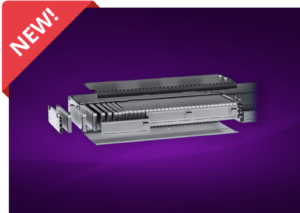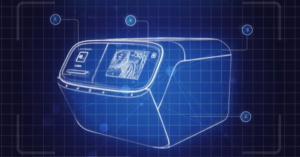Next-generation auto technology has become one of the hottest investing themes on Wall Street. Auto and tech companies have poured billions of dollars into the race to gain market share in what will most certainly be massive markets for electric and autonomous vehicles. AVs are no longer a figment of imagination in the era of artificial intelligence (“AI”) and are radically transforming travel.
Favorable regulatory framework and increasing government funding are expected to play a crucial role in accelerating the self-driving car market’s growth in the coming years. Governments across the globe are administering supportive regulations to enhance the adoption of AVs.
Per a report by Million Insights, the global autonomous vehicle market demand is projected to account for 4.2 million units by the end of 2030, witnessing a CAGR of more than 63%. Given the upbeat projections, there are a handful of self-driving stocks, which are considered as a can’t-miss investment for the long term in next-generation auto technology.
Our research team put together this list of a few of the top AV investments to make now, as the AV wave is just picking up steam.
Baidu Inc. (BIDU)
The China-based multinational technology company Baidu Inc. (BIDU) is one of the largest AI and Internet companies in the world. In 2019, Baidu entered a partnership with China-based state-owned carmaker, FAW Group, to develop the Hongqi EV AI-powered taxi, being its first mass-produced robotaxi in China. The vehicle is still being used in unmanned driving tests in multiple cities, including Beijing and Guangzhou. Reportedly, its lineup of 300 driverless vehicles logged 1.2 million miles in 13 different cities.
Earlier this year, Baidu rolled out its first fully AI-powered car as part of its Apollo project. The Baidu Apollo integrated AI system allows vehicles to drive independently, without a safety driver inside the vehicle. To ensure public safety in extreme road conditions, Baidu integrated 5G-enabled teleoperation into its vehicles.
Baidu stock has been hit hard this year, mostly due to regulatory pressures on Chinese stocks, share price is more than 30% lower on the year. These move seem to have, once again, got investor excited about BIDU’s growth potential and valuation.
Tesla (TSLA)
Tesla (TSLA) cars are equipped with a standard Autopilot —a driver-assistance feature that can brake, accelerate and steer automatically. The FSD ( full self-driving) package, however, gives added capabilities that enable cars to self-park, change lanes, and recognize stop signs and traffic lights.
In October, Tesla launched the beta version of the long-awaited feature to some owners. Autopilot Hardware 3.0 is the latest upgrade to the company’s FSD hardware, which happened early last year, and it has all the components necessary for FSD features. Within this upgrade, Tesla began equipping its new vehicles with a new, custom-built computer designed for partially-autonomous and fully-autonomous driving. The new hardware enabled Tesla to demonstrate further progress toward full autonomy. The company plans to use Models S, X, 3 and Y as future robotaxis.
TSLA back and forth price action hasn’t scared away investors. Actuall, many find the recent sell-off as a buying opportunity. The stock is down 14% so far this year.
Ford (F)
New Ford (F) CEO Jim Farley is taking an aggressive approach to autonomous and electric vehicles. Farley took over in October, and he recently announced that Ford would be raising its investments in AV and EV tech to $29 billion through 2025.
In October, Ford also unveiled its fourth-generation self-driving test vehicles based on the Ford Escape Hybrid crossover. Ford is adding the new vehicles to its current AV test fleets operating in Austin, Texas; Detroit; Miami; Palo Alto, California; Pittsburgh; and Washington, D.C. Ford and partner Argo AI plan to launch a self-driving commercial business in 2022.
When semiconductor giant Intel (INTC) acquired Israeli self-driving tech company Mobileye for $15.3 billion back in 2017, it immediately became a major player in the AV space. Mobileye is the world’s leading producer of advanced driver-assistance systems.
One of Mobileye’s major advantages is its data. The company currently has data-sharing agreements with six partners, including Volkswagen, BMW and Nissan. Mobileye reportedly gathers roughly 5 million miles of data every day. At the Consumer Electronics Show in January, Mobileye said its laser sensors will make self-driving cars affordable enough to mass-produce and sell to retail buyers by 2025.










